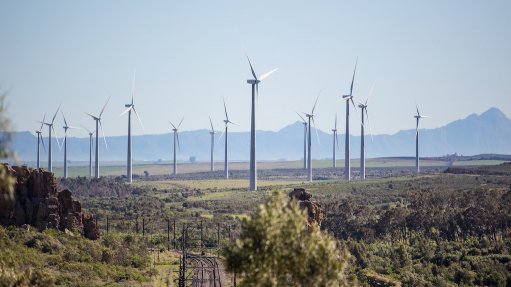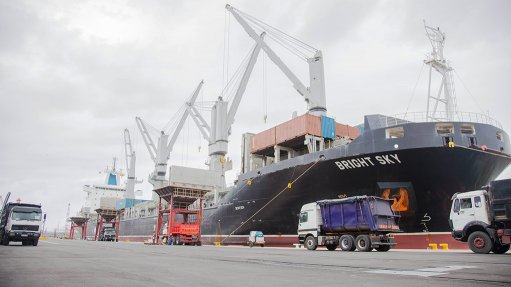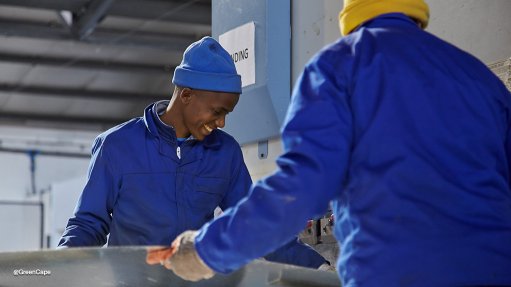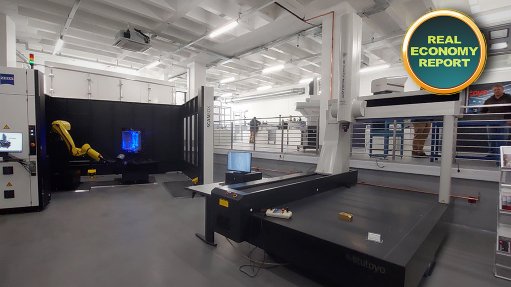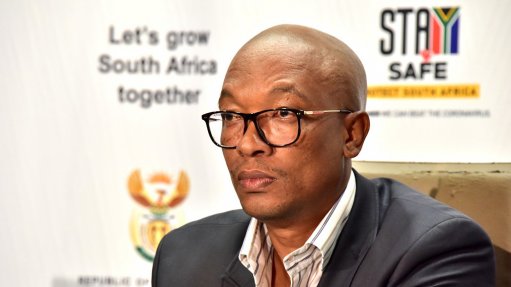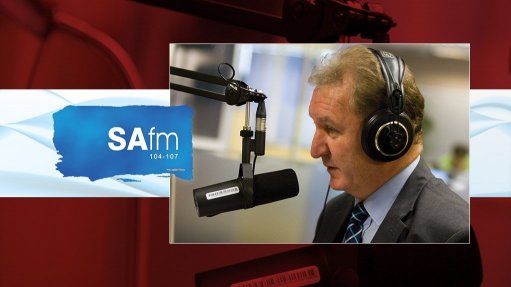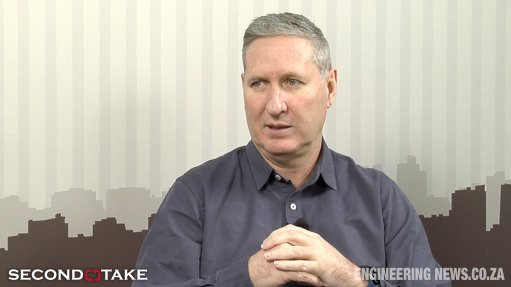Could automation be the answer to SA’s infrastructure woes?
This article has been supplied by the author and has not been written or solicited by Creamer Media. It may be available only for a limited time on this website.
By: Anand Subbaraj: CEO of software company Zuper, field service management (FSM) software
With South Africans last having experienced load shedding on 26 March (correct at the time of writing), many may be cautiously optimistic that the country has started turning the corner on its infrastructure woes. But the reality is they’re far from over.
In early June, for example, the country’s four major ports – Cape Town, Nqura, Port Elizabeth, and Durban – fell into the bottom 20 for performance according to the World Bank and ratings agency S&P. Worryingly, Cape Town came rock bottom out of 405 ports worldwide. Ports aren’t the only problem area either. Johannesburg is in the midst of a major water crisis thanks to decades of infrastructural neglect. And while there has been some movement onpassenger rail, commuter numbers are still dramatically down from where they were at the beginning of 2010. Further to that, drive through most towns and you’ll also see how neglected many of the country’s roads have become.
Fixing these issues won’t come cheaply either. According to the government’s own National Infrastructure Plan 2050, the cost of delivering infrastructure to meet its development goals is expected to exceed R6-trillion by 2040. But money alone won’t be enough. Because infrastructure repair and development touch so many parties, incredibly high levels of efficiency and organisation will also be required.
According to Anand Subbaraj, CEO of software company Zuper, field service management (FSM) software could prove essential for providing the requisite levels of efficiency an organisation needs.
“Whether it’s a new infrastructure project, repairs to existing infrastructure, or even critical maintenance, there are a lot of moving parts at play at any given time,” he says. “FSM technology can go a long way to ensuring that everyone working on those parts is doing so as efficiently as possible.”
For those unfamiliar with the term, FSM refers to the monitoring and optimisation of any operations which take place outside of an organisation’s office. It includes, but is not limited to, the coordination of resources such as equipment and employees to make those operations as efficient as possible. FSM software automates those processes, further enhancing efficiency.
According to Subbaraj, there are several ways that this kind of automation could help ease South Africa’s infrastructure woes.
“Take water treatment for example,” he says. “In a country as water scarce as South Africa is, it’s critical that all available drinking water is properly treated and that breakdowns in water treatment plants are kept to a minimum. FSM software can automatically schedule maintenance on specific parts and then alert and dispatch maintenance teams to sites at regular intervals.”
“This not only helps ensure that critical infrastructure receives vital maintenance work before it turns into a repair job,” he adds, “it also means that more resources can be dedicated to repairs where they’re most needed.”
But that’s not the only application for FSM software in the infrastructure sector.
“Another useful feature of good FSM software is that it can help with things like contract, invoicing, and time management,” the Zuper CEO says. “That’s especially helpful on large projects, including municipality infrastructures, and tracking and dispatching at city level where there can be multiple service providers involved. Tightly managing those service providers can help avoid overburn on costs and also ensure that they’re delivering to their capability.”
And good FSM software also has benefits for ordinary citizens too, according to Subbaraj.
“If FSM software is integrated into municipal fault reporting systems, for example, it can help ensure that things like burst pipes and electrical faults are dealt with faster and more efficiently than would otherwise be the case,” he says. “That in turn means a happier citizenry who feel less grudging about paying their rates and tariffs.”
The same is true for internet/WiFi connectivity, adds Subbaraj. “South Africa, like the rest of the world, conducts a vast amount of business virtually - be it through the use of emails, virtual meetings, sales, invoicing and payment systems, or tracking and reporting systems. Unexpected downtime in connectivity can have a massive effect on business operations and, at the end of the day, the bottom line. But having a system in place that provides technicians with the information they need, enables them to be able to service the equipment efficiently and hopefully fix it in a first visit, through providing the back-office data to look for trends. This allows for both preventative maintenance scheduling and break/fix scheduling.”
While Subbaraj is careful to note that FSM software isn’t a cure-all to infrastructure issues, it can be a valuable tool in addressing them.
“Like many countries, it will take time, effort, resources, and money to turn South Africa’s infrastructural issues around,” he concludes. “But if all of those things can be deployed as efficiently as possible, then the scale of the problem becomes that much more manageable.”
Comments
Press Office
Announcements
What's On
Subscribe to improve your user experience...
Option 1 (equivalent of R125 a month):
Receive a weekly copy of Creamer Media's Engineering News & Mining Weekly magazine
(print copy for those in South Africa and e-magazine for those outside of South Africa)
Receive daily email newsletters
Access to full search results
Access archive of magazine back copies
Access to Projects in Progress
Access to ONE Research Report of your choice in PDF format
Option 2 (equivalent of R375 a month):
All benefits from Option 1
PLUS
Access to Creamer Media's Research Channel Africa for ALL Research Reports, in PDF format, on various industrial and mining sectors
including Electricity; Water; Energy Transition; Hydrogen; Roads, Rail and Ports; Coal; Gold; Platinum; Battery Metals; etc.
Already a subscriber?
Forgotten your password?
Receive weekly copy of Creamer Media's Engineering News & Mining Weekly magazine (print copy for those in South Africa and e-magazine for those outside of South Africa)
➕
Recieve daily email newsletters
➕
Access to full search results
➕
Access archive of magazine back copies
➕
Access to Projects in Progress
➕
Access to ONE Research Report of your choice in PDF format
RESEARCH CHANNEL AFRICA
R4500 (equivalent of R375 a month)
SUBSCRIBEAll benefits from Option 1
➕
Access to Creamer Media's Research Channel Africa for ALL Research Reports on various industrial and mining sectors, in PDF format, including on:
Electricity
➕
Water
➕
Energy Transition
➕
Hydrogen
➕
Roads, Rail and Ports
➕
Coal
➕
Gold
➕
Platinum
➕
Battery Metals
➕
etc.
Receive all benefits from Option 1 or Option 2 delivered to numerous people at your company
➕
Multiple User names and Passwords for simultaneous log-ins
➕
Intranet integration access to all in your organisation






